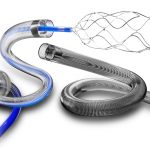BD (Becton, Dickinson and Company), a leading global medical technology company, along with Check-Points Health B.V., announced that the companies obtained CE Mark for a next-generation molecular screening test for antibiotic-resistant carbapenemase-producing organisms (CPOs) on the fully-automated BD MAX™ System.
It is estimated by the year 2050, as many as 10 million people could die annually from antimicrobial resistance (AMR) if no action is taken. AMR is the ability of a microorganism (such as a bacteria) to survive despite being treated with antimicrobial drugs that should destroy it. As a result, patients with these infections are more likely to develop complications and up to three times more likely to die.
The spread of CPO represents a major challenge to antimicrobial stewardship because these organisms have acquired the ability to produce the enzyme carbapenemase. This enzyme renders carbapenems, considered a drug of last resort, ineffective. This has brought about limited effective treatments resulting in high mortality rates.
The BD MAX™ Check-Points CPO assay provides detection of the five most common carbapenemase genes in less than 2.5 hours, as compared to traditional methods that can take up to 24 hours. Early detection of patients colonized with these organisms can provide the necessary information to implement proper infection control measures. This assay replaces an earlier version of the test from Check-Points, and offers an improved workflow and an additional target.
“We have been using the Check-Points assay on the BD MAX system for routine screening of CPO for nearly two years, because it provides us the information we need to isolate or de-isolate our high-risk patients shortly after admission,” said John Rossen, Assistant Professor of Medical Microbiology at the University Medical Center, Groningen (UMCG) in the Netherlands and scientific secretary of the ESCMID Study Group for Genomic and Molecular Diagnostics.
This assay joins BD’s comprehensive healthcare-associated infections diagnostics portfolio, which aims to reduce transmission and outbreak of deadly pathogens. The BD MAX system menu also includes syndromic panels for gastrointestinal infections, as well as reproductive and sexually transmitted infections, which aid laboratory professionals in their efforts to deliver diagnostic results that help enhance patient outcomes, while improving laboratory efficiency. The instrument also features an open system capability, allowing for streamlined workflow of laboratory developed tests and for additional assays via BD partner collaborations.
















